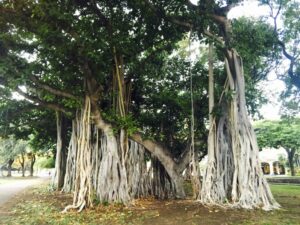Lesson 18 –
John 15:1-8 NRSV
1 “I am the true vine, and my Father is the vine grower. 2 He removes every branch in me that bears no fruit. Every branch that bears fruit he prunes to make it bear more fruit. 3 You have already been cleansed by the word that I have spoken to you. 4 Abide in me as I abide in you. Just as the branch cannot bear fruit by itself unless it abides in the vine, neither can you unless you abide in me. 5 I am the vine, you are the branches. Those who abide in me and I in them bear much fruit, because apart from me you can do nothing. 6 Whoever does not abide in me is thrown away like a branch and withers; such branches are gathered, thrown into the fire, and burned. 7 If you abide in me, and my words abide in you, ask for whatever you wish, and it will be done for you. 8 My Father is glorified by this, that you bear much fruit and become my disciples.
Background
Later in this chapter, Jesus talks about the love and joy that springs forward from God. Jesus also warns the people that they will absolutely experience hatred from the world. But he promises an “Advocate” that will be the “spirit of truth. Even though Jesus tells the people that they will endure hardships and hatred, he promises that an advocate will support them. In your own devotional period this week, spend time reading this chapter. Is there anyone in your community who has offered you this two pronged “warning-and-promise?”
Today’s lesson will focus on building a fortified legacy.
Read the scripture out loud together. Are there any interesting stories in your family history? A major move across the country, a funny story, drama everyone pretends to ignore? Why does this story interest you so much?
What’s happening during this passage?
Jesus uses the metaphor of vines with his people. He refers to himself as the “True vine,” while his father is the vine grower. The branches that are not productive are removed. But even the ones that do bear fruit are pruned to bear more. Jesus refers to his word as a “cleansing” element. Taking his metaphor further, he argues that the branch cannot bear fruit unless it “abides in the vine.” People who abide in Jesus (and he also abides in them) are able to bear much fruit, because no one can do anything without him. Those who do not abide in Jesus are “thrown away” like a branch, and even worse, they are gathered, thrown into a fire, and burned. But if we abide in him, and his words abide in us, you may “Ask for whatever you wish” and it will be done. In all this, the Father is glorified.
| Father | Vine Grower | |
| Jesus | True Vine | |
| Disciples/Us | The Branch |
In this last column, describe what these people/metaphors do. According to the text, what does The Father/Vine grower do? Jesus? The Disciples?
What actions are taking place here? Highlight all the action verbs you see here.
Removes. Bears fruit. Cleansed. Abide. Prune. Glorified. Ask. Thrown. Burned.
How does the word “burned” fit with an image of a loving and compassionate Christ?
Jesus is using a metaphor here. But when using metaphors, we have to be careful. Jesus talks about people who do not abide in him as “gathered, thrown into a fire, and burned.” Certainly, violent imagery like this is the foundation of bigoted lynch mobs and witch hunts.
But if we’re talking about vegetation and plants, sometimes fire is good. It is cleansing. Sometimes farmers burn fields because it helps the plants that are about to emerge. These planned and intentional burns are called “prescribed burns.” These burns are calculated and help renew the soil. Fire is not always destructive.
If we are not careful with the metaphor, we may hear that Jesus is calling us to gather the “unfaithful,” throw them away, and burn them. That is not God’s desire for us or anyone. We can take our clue from Jesus’ interaction with the woman who people say was “caught in adultery” alone. Jesus could have chosen to cut her off, and even enact physical violence. But he chose to intervene and put his body on the line to protect her. We can deduce that Jesus is not calling us to enact physical harm on anyone. This is Jesus’ fruit. How are we living into his example?
What questions do you still have of this scripture? How will you commit to journeying with this text this week?
Connection to Today’s World
The banyan tree is technically a kind of fig tree. It is distinguished by its tangled roots that also look like trunks and branches. They’re an intricate species of tree. They’re also among the largest trees. The biggest one alive is in India, and it covers 4.7 acres of land. Inside these trees, you will find insects, birds, bats, and even primates. Their shelter makes it possible for so many living things to live and thrive. It’s an impossible tree to control. Sometimes the roots get tangled and twisted. Parts of the bark, leaves and roots have medicinal properties.
Though these trees look twisted and disorganized, they all serve a purpose for the larger ecosystem.
Journal: What does your fruit look like? How is God’s love evident in your life? What about you reflects “the true vine?”
Closing: Listen to “Real, Real, Jesus is Real To Me,” sung by Bishop G.E. Patterson
Real, real, Jesus is real to me
Oh, yes, he gives me victory
So many, many people doubt him
I can’t live without him
That is why I love him so
He’s so real to me
Prayer:
Dear God,
We are all different. Some of us are bonsai trees, others are banyans, some are ivy vines, others are cacti. But no matter how different we are, you love us for all that we are, and all that we can be.
Help us to focus on the work you are calling us to do. Don’t let us treat each other like something to dispose of. Remind us of our interconnectedness. Show us where our roots overlap and teach us to rely on YOU, the Vine Grower. Help us to tap into the true vine in a world full of confusion and distraction.
In Jesus’ name we pray, Amen.
https://underthebanyan.blog/2016/09/04/10-things-you-need-to-know-about-banyan-trees/





